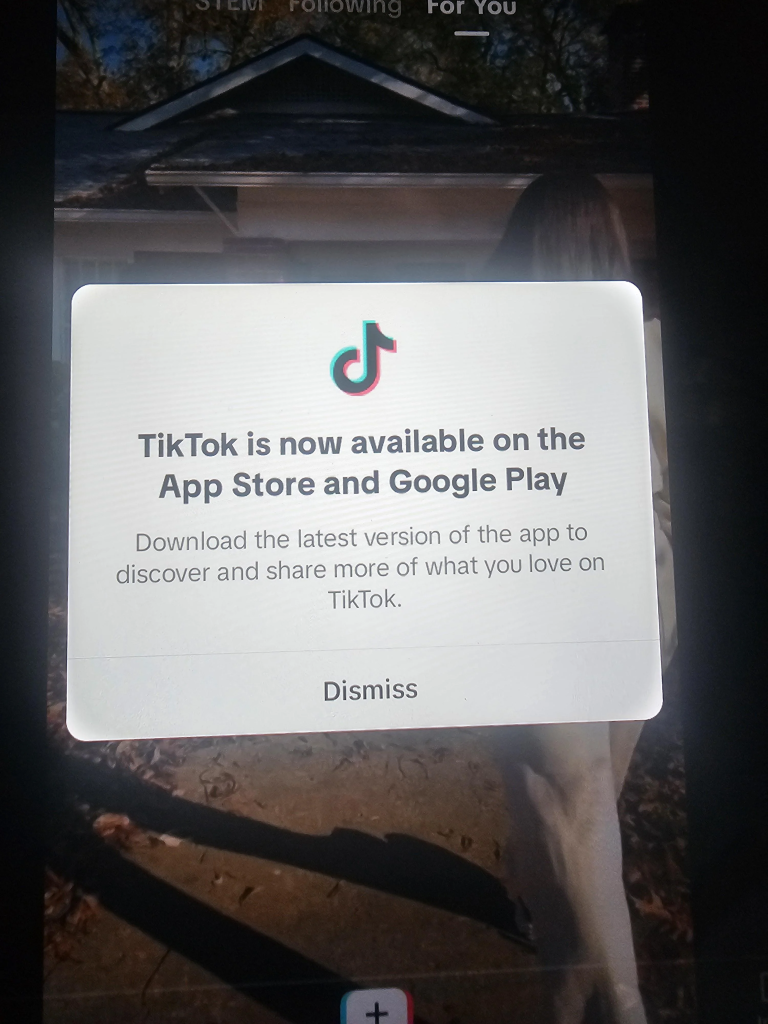After weeks of uncertainty, TikTok is back on the U.S. App Store and Google Play, marking a major turning point in its ongoing legal and political saga. The Chinese-owned video platform’s return has reignited debates over its future. With the recent assurances from U.S. officials and evolving negotiations, the digital landscape remains on edge.
Is TikTok Back in The App Store?
TikTok was abruptly removed from U.S. app stores on January 19 under the Protecting Americans From Foreign Adversary Controlled Applications Act (PAFACA). This law was designed to counter potential national security risks linked to Chinese-owned apps. Under its strict provisions, ByteDance—the parent company of TikTok—was required to divest its U.S. operations or face a complete ban. For a time, even users who already had TikTok installed could not update or download new content, with both Apple and Google displaying notices that TikTok and other ByteDance apps were not available.

However, after just 26 days of absence, TikTok made a triumphant return. U.S. Attorney General Pam Bondi sent a reassuring letter to both Apple and Google, promising that the tech giants would not be fined for hosting the app. This assurance led to the question on everyone’s mind: “is TikTok back in the app store?”—and the answer is a resounding yes.
Legal Delays Thanks To President Trump
TikTok’s removal and subsequent reinstatement were shaped by high-stakes political decisions. In a dramatic turn of events, President Donald Trump signed an executive order delaying enforcement of the ban for 75 days. This extension was meant to provide extra time for negotiations that could lead to the sale of TikTok’s U.S. operations to an American company. During this reprieve, although existing users could continue enjoying the app, new downloads were initially blocked.
Once the promised assurances were in place, both Apple and Google restored TikTok for new downloads. The app’s comeback not only answered the query “is TikTok back on app store” but also set the stage for more complex discussions regarding its future.
Lingering Shadow of the TikTok Ban
Despite its return, the future of TikTok remains uncertain under the looming threat of the TikTok ban. The law that precipitated its removal still stands, requiring ByteDance to sell its U.S. operations within a specific timeframe or face renewed prohibition. U.S. lawmakers and security officials continue to express concerns about data privacy and the potential for foreign interference, keeping the pressure on TikTok to secure its long-term future in the American market.
For now, TikTok remains accessible on the app store, offering its unique blend of short-form video content to millions of users. However, the ongoing debate over national security means that its continued availability could be temporary if ByteDance fails to finalize a sale that satisfies regulatory demands.
Who Might Buy TikTok?
The pressing question now is “who bought TikTok” or, more precisely, who will ultimately acquire its U.S. operations. With national security concerns still front and center, talks of a potential sale have captured the attention of industry giants and investors alike. Rumors suggest that major players such as Oracle and Microsoft, as well as American investor consortia, are in advanced discussions to secure a controlling stake. Some proposals even hint at ByteDance retaining a minority share, while U.S. companies assume majority ownership.
This potential sale is not just about shifting corporate control; it’s also a critical move to address security concerns. By transferring ownership, U.S. regulators hope to ensure that TikTok on the app store adheres to strict data privacy and national security standards. As discussions heat up, speculations about who will ultimate buy TikTok are likely to dominate tech headlines in the coming months.
Light At The End of The Tunnel
TikTok’s dramatic return to the app store is both a victory and a challenge. With more than 170 million active American users, the platform has become a cultural and economic powerhouse. Its reinstatement offers a reprieve for fans and content creators alike, yet it also signals the beginning of a new phase filled with complex ownership negotiations and regulatory hurdles.
For now, American users can once again enjoy TikTok’s dynamic content, but the platform’s future hangs in the balance as stakeholders navigate an increasingly complex regulatory environment.


